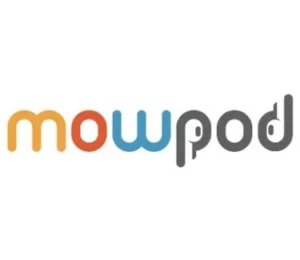Why marketing to employees matters — Ed Nevraumont // Marketing BS
Ed Nevraumont
Marketing BS
- Part 1Defining marketing the 3rd way
- Part 2 Why marketing to employees matters — Ed Nevraumont // Marketing BS
- Part 3Why real fidelity matters for marketers — Ed Nevraumont // Marketing BS
Show Notes
Quotes
-
“Marketing employees always mattered. If you look at what drives the success of a company, clearly your human capital matters a lot. I started my career at Procter & Gamble and on the first day, the President of the country came to talk to us, that if P&G lost all the manufacturing plants, and all their brands but kept their people, they could rebuild the company within a decade. But if we lost all our people and kept all our brands, wed be done.” - Ed
-
“Employees clearly matter for the success of the business. As companies get more technological, that success matters more and more. People talk about the hundred ex-engineer where a good engineer vs. a bad engineer could be 100 times better. No one talks about the hundred X better milk, or bread, or laundry detergent. Employee can definitely be a hundred X more effective than an employee.” - Ed
-
“Getting the right talent in your organization definitely matters a lot. When youre a small company, that means doing employee sales. Going and recruiting the people that you wanna have work for you, one-on-one and bringing in the right people on the door.” - Ed
-
“But as you get bigger and bigger, its harder and harder to manage that at scale. Basically recruiting employees moves from a sales problem into a marketing problem.” - Ed
-
“Its both. In traditional marketing, youre trying to acquire marketers but as you do that, a big portion of that marketing hits existing marketing as well and increases the retention with you. The better you are at doing that, the less premium you have to pay in dollars.” - Ed
-
“So the investment youre putting into finding employees, is a big one. So it makes sense that youre going to be as efficient as you possibly can. In finding those people, you also want to focus on your retention strategy. This is similar to doing customer acquisition, or customer retention as well.” - Ben
-
“Theres two big types of marketing. Theres the brand marketing, long-term impact, trying to build a brand and reduce the price elasticity of your product and then theres performance marketing which is spending a dollar on marketing now to get a dollar tomorrow. Theres a performance marketing aspect to recruiting.” - Ed
-
“I think the more interesting side though is called the brand building aspect of marketing to employees which affects recruiting employees but has a far bigger effect on existing employees.” - Ed
-
“Is marketing to employees different now that the notion of much of the workforce has changed from W2 employee 1 job, 1 company relationship to 1 person can work for multiple companies and freelance and they dont necessarily have to invest in being an employee. How has that changed the equation?” - Ben
-
“The metaphor would be advertising and television. The trend youre suggesting is actually happening. People are more likely to become contractors rather than becoming employees but its still a very small percentage of the workforce.” - Ed
-
“We saw the same thing happen when TiVo launched, the people went fast forwarding to commercials and ever since then, which was 15 years ago, people have been saying, television is dying and we need to find a new marketing channel. Television started decreasing 15 years ago, viewership decreased but even today in 2021, people still watch even with Netflix and Disney+, people still watch a lot of advertising-driven television. Its still a humongous channel, 15 years after it was declared dead.” - Ed
-
“Traditionally it sat in the HR function, it hasnt been a high priority for the organization but I think its because the quality of employees matter more and more as we become a more tech-driven society and its so important that it cant just sit in HR.” - Ed
-
“My thought is, when we talk about workforce and marketing specifically, a lot of what were doing is automating. We acquire less people most of the time, at least in tech businesses, and so, who is your actual operator and their skillset becomes more important.” - Ben
-
“If you have a great employee, a great contractor, and a great freelancer, somebody with a really valuable skill set, they can do a work of three, five, ten people where it used to be one-to-one relationship, you would need one body for one unit of output. Not necessarily the case now that we have great technology available to us specifically in marketing.” - Ben
-
“It feels like the white whale that people chase over and over again. Its a bit of viral marketing. Viral marketing exists. You can get customers to promote other customers but its usually built in to the actual function of the product itself.” - Ed
-
“Getting employees to market for you feels an awful lot like, hey how do we get customers to get a boot and market for us. There are ways you can do things on the margin. But generally, the best way is, if you have a product thats very cool, and your employees are very, very happy, spread will happen that way.” - Ed
-
“The most effective way is having your employees do actual recruitment. Basically, your employees do a sales function for recruiting more employees rather than a marketing function.” - Ed
- Part 1Defining marketing the 3rd way
- Part 2 Why marketing to employees matters — Ed Nevraumont // Marketing BS
- Part 3Why real fidelity matters for marketers — Ed Nevraumont // Marketing BS
Ed Nevraumont
Marketing BS
Up Next:
-
Part 1Defining marketing the 3rd way
In this first episode, Ed talked about the third way of marketing, the idea of bundling, how performance marketing took over when the internet was the hottest thing, and the problem of it having a short-term feedback cycle.
Play Podcast -
Part 2Why marketing to employees matters — Ed Nevraumont // Marketing BS
In this second episode, Ed talks about employee advocacy and employees as a marketing channel, having employees to do a sales function for recruiting more employees rather than marketing one. Ed also discussed how it hasn’t been a high priority for organization before but now, since we are becoming a more tech-driven society, it cannot just sit in HR.
-
Part 3Why real fidelity matters for marketers — Ed Nevraumont // Marketing BS
In our third episode, Ed talks about why fidelity matters, why attention is the currency that we are actually trying to buy with our marketing efforts, and re-evaluating the marketing once the world opens up. Ed also discussed how people pay attention in real life more than they do digitally and that’s why we as humans pay for it.
Play Podcast










